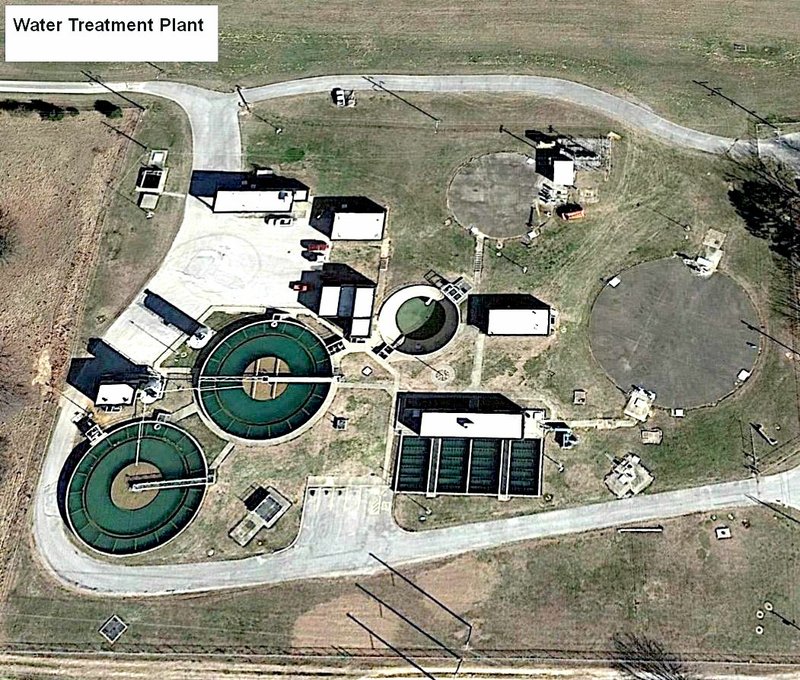Siloam Springs was approved for a $30.1 million Arkansas Natural Resource Commission Loan to upgrade the water treatment plant.
The state Department of Agriculture, which oversees the ANRC, announced Siloam Springs was one of eight communities approved for grants or loans on Jan. 16, according to a press release from the agency. The loan will be used for upgrades to the water treatment plant, the press release states. Plans for the upgrade went before the board of directors on Tuesday, after press time.
The water treatment plant requires upgrades that total $29,423,300, according to a staff report for the city board's meeting on Tuesday, prepared by Steve Gorszczyk, director of public works. Improvements will include the addition of a 24-inch diameter transmission line from the Illinois River intake to the water treatment plant; replacing all the mechanical and processing equipment (pumps, mixers, clarifier rotating parts); updating the monitoring and controls (automation) equipment; filter improvements and conversion of the disinfection system from gas chlorine to sodium hypochlorite (bleach), Gorszczyk said in an interview.
The loan carries a 1.75% interest rate for 20 years, Gorszczyk said. The city had two options to raise funds for the project -- raise water rates and issue bonds or apply for low interest loans, he said. The city hired Bank of Arkansas as a financial consultant and after doing their research, Bank of Arkansas recommended a low interest loan from the ANRC, Gorszczyk said.
The city applied for available funding and was selected through a non competitive process, according to Amy Lyman, director of marketing and communications for the Arkansas Department of Agriculture which oversees the ANRC. The city will have to start repayment of the loan within one year of the project completion, however, if the project exceeds the estimated completion date, repayment may start prior to the completion date, Lyman said.
Funds for the loan will be issued under the Drinking Water State Revolving Loan Fund program. Funds must be used for project costs that are considered eligible under that program, such as the purchase and installation of water lines, she said.
The loan application process had two levels, Gorszczyk said. The first involved sending an application to the Water and Wastewater Advisory Committee. This committee is comprised of people from five agencies: the ANRC, Arkansas Department of Health, USDA Rural Development Group, Community Resource Group and State Clearinghouse, Gorszczyk said.
After the committee approved the application, the city had to submit a funding application, Gorszczyk said. Once it was approved, the application went before the ANRC commission where a staff member presented the case and the commission approved it, Gorszczyk said. The original loan amount was for $31 million but a 3% fee was mistakenly added to the application when it was presented to the commission, he said. Gorszczyk is not sure if the city or ANRC added that fee.
The next step is for ANRC to send a letter of approval and finally the loan documents for the mayor to sign, Gorszczyk said. The loan will be repaid by the proceeds from the 5/8-cent sales tax, he said.
This is not the first time the city has taken out this loan, Gorszczyk said. In 2009, the city received the loan to upgrade the wastewater plant and through the 5/8-cent sales tax managed to pay the loan off in 10 years, Gorszczyk said.
The board does not need to vote on the loan issue at present, Gorszczyk said. When the loan documents are received from ANRC, the issue will go before the board, according to City Administrator Phillip Patterson.
General News on 01/22/2020

